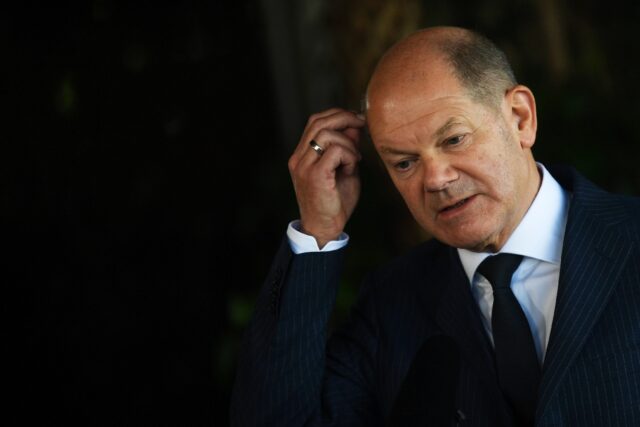Germany’s Olaf Scholz was Monday officially named to lead his Social Democrats into February elections, but the embattled chancellor faces a tough fight to win a second term.
The way had been cleared for Scholz to become the SPD’s chancellor candidate after his popular defence minister, Boris Pistorius, ruled himself out of the race last week.
The SPD’s federal executive board unanimously backed 66-year-old Scholz on Monday, a decision expected to be confirmed at a party congress on January 11.
The elections are to be held seven months earlier than scheduled after the collapse of Scholz’s coalition with the Greens and Free Democrats (FDP) in early November.
Scholz said Monday that as head of the feuding three-party coalition, it had become “increasingly difficult to make decisions in difficult times, and that is why it was right that this government ended”.
“Now the citizens have their say, we are seeking their vote,” he added, accepting the party’s nomination.
Top issues for Germany would remain Russia’s war against Ukraine, bringing down high energy prices, modernising Germany’s ailing economy and guaranteeing good wages, pensions and social welfare, he said.
To meet all those challenges, Scholz said, his centre-left party would support a “change in the debt brake” that limits new state borrowing — a flashpoint issue that was at the heart of the coalition breakup.
– ‘Peace chancellor’ –
The SPD leadership urged its members to close ranks behind Scholz — a risky gamble for Germany’s oldest political party, which is languishing at around 15 percent in opinion polls.
News magazine Der Spiegel in a scathing commentary labelled him “probably the weakest, most unsuitable candidate for the chancellorship that the SPD has ever put forward”.
The main opposition conservatives, the CDU-CSU alliance, are way ahead in opinion surveys with 33 percent, while the far-right Alternative for Germany (AfD) is polling at 18 percent.
But even with the odds stacked against him, the man nicknamed the “Scholzomat” for his dry and at times almost robotic style of public speaking appears convinced he can again lead his party to victory.
Scholz has pointed out that he defied dire predictions and triumphed at Germany’s last elections in 2021, when he greatly benefited from divisions within the conservative opposition.
In a speech on Friday, Scholz was already courting voters by calling for “prudence” in Germany’s approach to military support for Ukraine in its war against Russia.
While Germany is Kyiv’s second-biggest military backer, Scholz has refused to send long-range Taurus missiles to Ukraine, fearing they could escalate the conflict.
Scholz also held a phone call with Russian President Vladimir Putin this month, leading the opposition to accuse him of electioneering by seeking to present himself as the “peace chancellor”.
On Monday, Scholz again stressed firm support for Ukraine “in its defensive fight for freedom and democracy” but also said his government had done “everything to ensure that this war does not escalate into a war between Russia and NATO”.
Campaign mode
Several senior party members had spoken out in favour of Pistorius, saying that Scholz was too closely associated with the failed three-party coalition.
But SPD politician Dirk Wiese, who just days ago hinted that he was behind Pistorius, told the RND broadcaster last weekend that the party now had to “flip the switch and go into election campaign mode”.
Party members have suggested they will focus on Scholz’s experience and his reputation as a safe pair of hands in the campaign.
Saarland’s SPD state premier Anke Rehlinger told the TAZ newspaper that Scholz was “a pro in the chancellery” who had weathered multiple crises and overcome them.
Pistorius, 64, also highlighted Scholz’s experience when he announced his decision to step out of the race, calling him “an excellent chancellor”.
The conservatives, meanwhile, have welcomed Scholz’s candidacy, betting he will be easier to beat than Pistorius.
The decision “is good for us”, said CDU lawmaker Mathias Middelberg. “Pistorius would have been more unpleasant for the CDU and the CSU.”

COMMENTS
Please let us know if you're having issues with commenting.